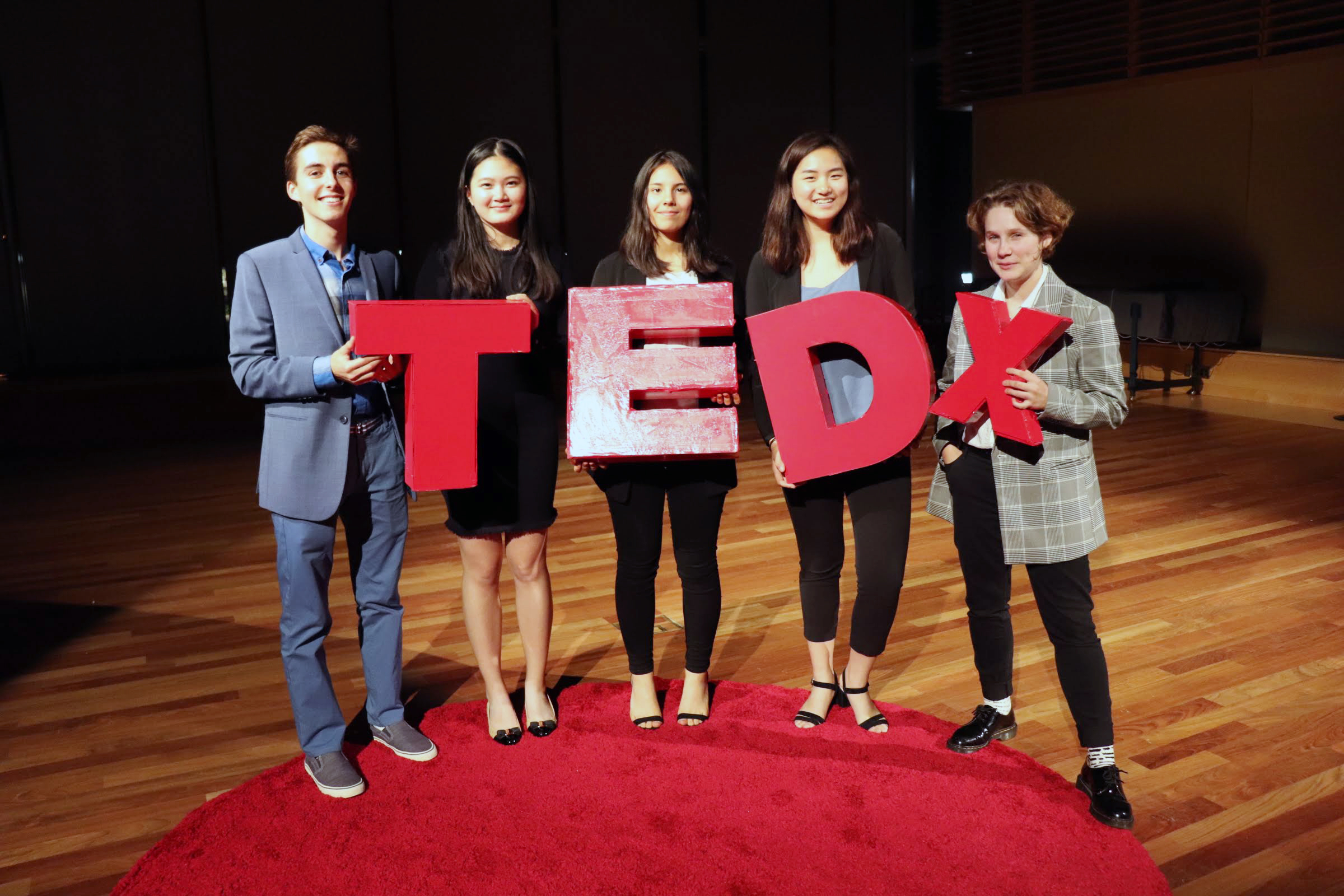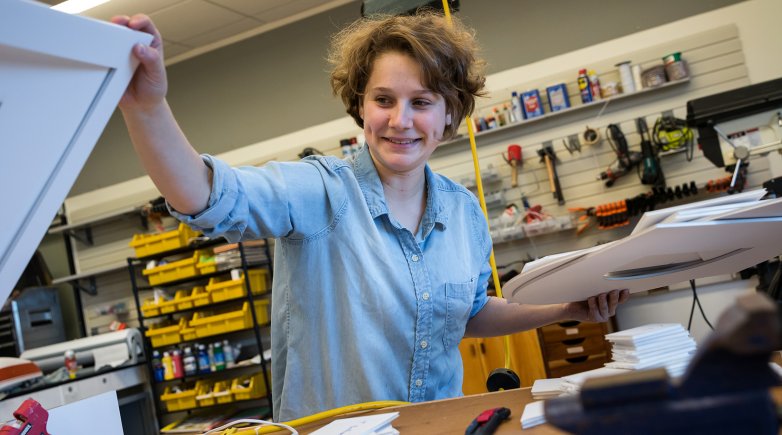The making of a TEDx talk
Elizabeth Kostina '20 reveals the inspiration for — and trepidation around — developing Exeter's inaugural event with the internet's iconic idea-sharing brand.
Elizabeth Kostina '20 was a driving force behind Exeter's first TEDx event.
Elizabeth Kostina ’20 had a busy fall term. Along with carrying a crowded course load, the second-year upper from Michigan spent the fall rehearsing for her star turn as Puck in the Mainstage performance of A Midsummer Night’s Dream, and serving as co-head of Reel Life Productions, Exeter’s film club.
Perhaps most impressive, she also was a driving force behind PEA’s first TEDx event, a night of story sharing in October around the theme of "generations." We asked Elizabeth to write about what inspired her to take on that challenge and share some lessons she may have learned along the way.
Many people have asked me what motivated me to do something this insane. I have to admit that it was for selfish reasons.
I’m sure everyone remembers watching a TED talk at some point in their life. From the funny “How to Tie Your Shoes” talk by Terry Moore to the exquisite and driven poetic style of Jamila Lyiscott’s “3 Ways to Speak English,” TED has it all. I have lived in mid-Michigan for nearly all of my life, and there isn’t much to do or see on the weekends unless you want to drive three hours out. And, well, I can’t drive, so the public library and early YouTube were the ways that I taught and entertained myself. There wasn’t much that went on, but TED, with its enticingly simple motto “Ideas Worth Sharing,” became my window into the world outside my small town.
I’m not entirely sure why I was so compelled to host a TEDx event. I do things, some crazy and not well thought out, then I look back and I ask myself where that came from. Maybe it was my way of bidding farewell to my Michigan cocoon, a final salute to acres of farmland and the rows of corn trapped inside stretches of grey road. Maybe it was my way of paying homage to the thing that had partly raised me in my very small, ideologically homogeneous town. Or, maybe it was my penchant to have a greater discussion about, literally, anything. Corn has ears, but it can’t talk back to you.

It’s all kind of a blur, a process that began for me last year as new lower when I knocked on Ms. McGahie’s door and told her I wanted to host a TEDx event. Just finding the application on the website — amid the strict regulations for filming, audience/stage requirements and the very specific dimensions and color for the TEDx letters (Pantone 485, if you’re interested) — took me two hours. The application consists of a variety of questions about the name, theme and venue of your event. TEDx must approve your application to ensure that its brand is well preserved.
About a week after my approval came, I received a forwarded email from TEDx which said someone else had applied for a license at Exeter. We were put in contact with each other, and the TEDx Phillips Exeter Academy team — Mark Blekherman, Summer Hua, Penny Brant, Jasmine Liao and myself, with Ms. McGahie serving as the team’s adviser — was born.
Together, through trial and error of different themes and the impact they might have, we decided on a broad theme of “generations.” Applying speakers could discuss generations in any context; family, monopoly, technological divides, etc. One could regard “generation” as the act of creating something, or the act of something being born, regeneration, even.
We didn’t expect the number of personal stories people shared through the application process, and we were quite pleased with how the event evolved into a combination of personal stories as well as talks from corners of technology to health and life and linguistics.
The event itself was a success. There was a tangible response of positivity that came from audience, and that was fabulous. Part of me was convinced that I had done my waving cornfields justice, while that inner voice (the one that tells you to eat the pint of ice cream as part of the ritual of a mental breakdown) told me that it was good — but not perfect. There is room for improvement.
My goal for next year is to host a larger, longer event. That way, we’d be able to incorporate more speakers and maybe host some workshops with alumni or teachers (or even students) to make it an even stronger Exeter community event.
I hope PEA’s TEDx event passes on from year to year, person to person, who will take it and make it their own unique time and space. Some people give buildings, others give Harkness tables, and if my campus legacy is the TEDx event, I’ll have done my cornfields proud.
